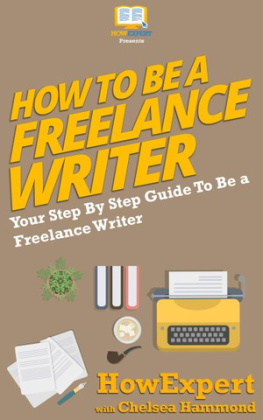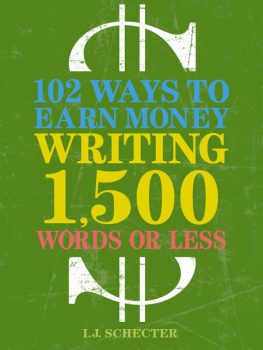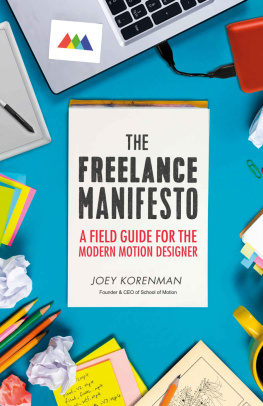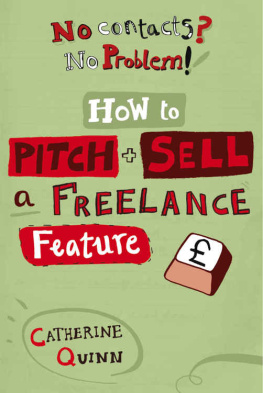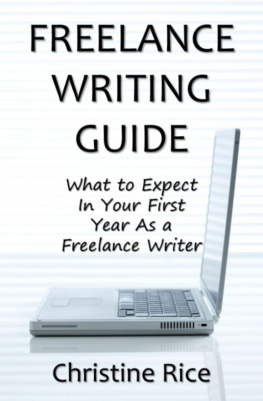Table of Contents
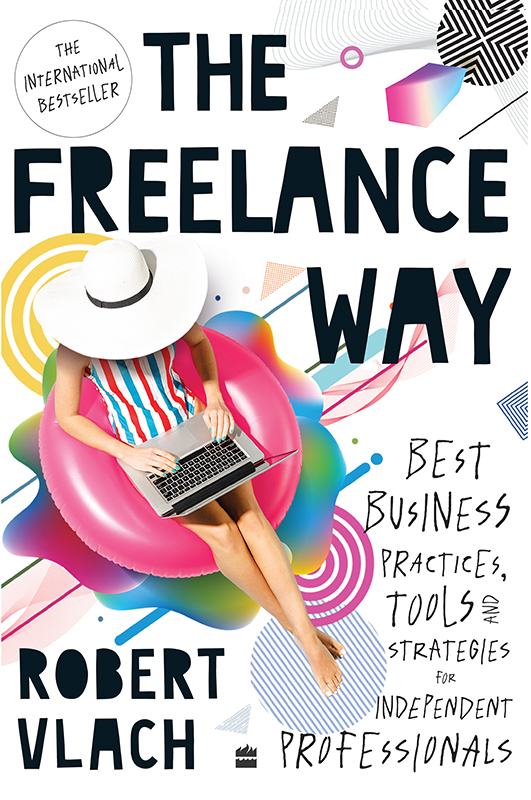

I dedicate this book to my dearest Lenka and to our children Richard and Olivia not out of fatherly sentiment, but because if they too start freelancing one day, the age-old principles for doing business successfully will still be unchanged.
Robert Vlach
CONTENTS
This is a great question! But its really three questions in one:
Can business be learned?
If so, then how?
And am I the one to teach you?
Let me answer these, starting from the core of the matter:
Business can be learned, and you can learn it too.
Its not a matter of luck or talent, but a set of skills that lead to lasting prosperity and profit, when fully learned. And what is even better, the key principles of how to succeed as a freelancer are universal and therefore basically the same everywhere.
Yet when I say learn, Im not just thinking of beginners. You can be a top expert but a merely average businessman, still making big mistakes after many years. Furthermore, its still good to learn new skills, even if youve been freelancing for 20 years like me.
WORRIED YOURE NOT CUT OUT FOR BUSINESS?
I understand your worries better than you may think. I myself believed for years that I wasnt made for business. I was 12 when my parents opened their bakery in 1991. Their business plan was simple and seemingly doomed to succeed: People will always buy and eat bread. And they were surely right, but they didnt realize that this sector is capital-hungry while bringing little profit. They used all their assets to buy new equipment, so once they first fired up their oven, there was no going back.
Baking is hard work, as my parents would soon learn. My dad went to work at five so there would be fresh bread on the shelves each morning. My mom worked hard to keep those shelves stocked. As a result, my brother and I didnt see them much at home for the first ten years. Such a large chunk of life sacrificed just to protect their investment.
When I saw how much time and care it took, and how many overnight and weekend shifts were involved in their business, I swore: Ill never be an entrepreneur.
I was already studying business at school by that time, but it only strengthened my bias. It had a strict company focus, and as such it fit with the business style of my parents. Freelancing? Forget it! Family and school influences led me to an incomplete and mistaken view of business that turned into rejection. And that would have been itbut for a happy accident.
WHO AM I TO SAY HOW YOU SHOULD DO BUSINESS?
In 1999, I headed out to Spain to do some seasonal labor, but I ended up working there for several years as a web development contractor. These were pioneering times, before the dot-com bubble burst, and as a projects lead developer, I had enormous freedom to work whenever and on whatever I wanted. I sometimes even worked seven days a week, my own boss urged me to take a break. I didnt care. That was how much I loved my work.
But every project ends one day, and so a few years later I found myself faced with a decision: either enter into some kind of permanent employment, or put my skills on the open market for other clients. That idea both excited and frightened me, because after all, I had never wanted to be an entrepreneur. But at the same time I longed for the freedom to choose with whom, where, on what, and under what conditions to work. Suddenly I could imagine going freelance.
As I gained more experience as a freelancer, the focus of my interests shifted towards supporting my freelancing friends. I created a few websites that successfully promoted their services, which led me to another turning point: In 2005 I founded a Czech national community of independent professionals that is now among the most active in Europe and helps the 200,000 freelancers who follow it to do business better. Then in 2012, I founded Europes first think-tank for freelancers, which meets regularly in Prague and other cities, as well as online. My latest project Freelancing.eu was launched in 2020 to support freelancing all over Europe.
Ive been holding business courses for freelancers for more than a decade, putting me in contact with countless professionals from dozens of fields and providing me with a view of what parts of business worry and interest them the most. Ive trained nuclear physicists, introverted IT developers, extravagant artists, and ordinary bar owners and as much as their fields varied, as solo entrepreneurs they had surprisingly much in common.
Ive worked an equally long time in business consulting. I have dozens of projects behind me, and over 300 consulting cases. As a consultant, Ive gotten to know the businesses of individuals, startups, and companies from all sides, including the dark ones. So I wont be telling you in this book that business is a rose garden.
The results of freelancing surveys, including our own, are another tool that has helped me to better understand this broad subject. Ill be citing some of these, along with other resources and books that can help you in business.
BUSINESS MEANS SOLVING PROBLEMS
My experience has taught me not to think about business too theoretically and generally, because that often leads people astray. Instead I always ask the question:
What kind of business are we talking about?
Are we talking about a certain business approach? A certain profession? A certain persons business? These questions are in order here as well, so let me give you a precise answer:
This book is about how freelancers do business, work on themselves and their name, and sell their expertise on the free market. So its about independent professionals with a publicly declared expertise, profession, or trade and this is precisely why we as customers hire them.
But freelancing can also be defined in many other ways, and people commonly include into it side jobs that are done to make a little extra money, like tutoring and temporary work, along with gigs acquired through agencies or apps like Uber and Airbnb. This makes sense in some ways, but this book is mainly for freelancers who have a specific expertise and the ambition to do business on their own, or have already been doing so for a few years.
If youve already been freelancing for a while, or you often cooperate with freelancers, you can take this book as an informal audit search for tips and new ideas, bridge your gaps, check off what youre already doing, and fix mistakes. There are always some left.
If youre still trying to figure out which direction to launch your career, Ill offer you a realistic idea of what freelancing brings to your life, including practical recommendations on making that launch successful.
Learning to do business is similar to learning art, science, or a new language. There are no step-by-step guides, because no such thing exists in the ever-changing and complex world of business. It all starts with basic knowledge and approaches, which Ill definitely describe, but the final goal is to gain the ability to solve new problems.
Business means solving problems. So Ill describe not only the latest know-how and time-tested strategies, but also how experienced freelancers think, and what strategies they apply to stay successful even after ten or twenty years. And along the way, Ill show you so many tempting traps and dead ends that by the end, youll be able to see them from a mile away. Ill teach you how to track success, catch it, and then bring it home with a victory cry.


